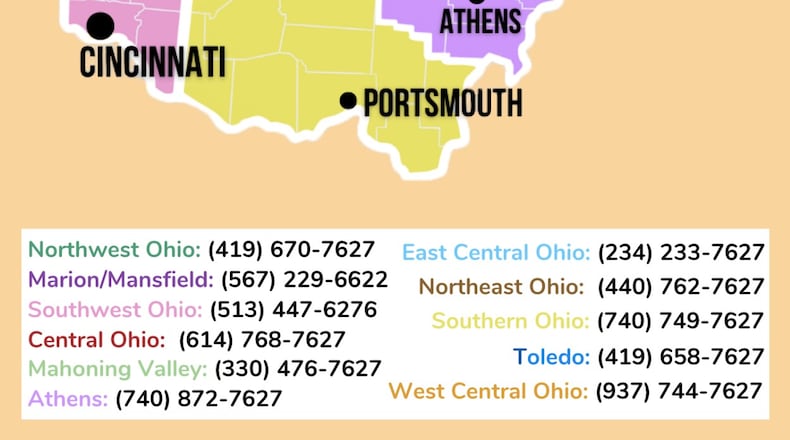According to the Substance Abuse and Mental Health Services Administration, a division of the U.S. Department of Health and Human Services, harm reduction can be critical to keeping people alive and as healthy as possible, using tactics to work directly with people to prevent drug overdoses, prevent the transfer of infectious diseases, and improving those individuals’ physical, mental, and social well-beings.
The SOAR Initiative’s harm reduction goals aim to give power back to people who are affected by these issues, provide early detection, and also provide emotional levels of support, Sauer said.
The organization, and harm reduction in general, has received some push-back for its programs, but Sauer added, “Reducing the harm is more important than trying to get rid of drug use altogether.” According to the CDC, drug overdose deaths in the U.S. exceed 100,000 deaths annually.
“People are dying every single day ... We can’t just ignore that,” Sauer said.
The SOAR Initiative utilizes multiple approaches to harm reduction, such as offering fentanyl test strips to test drugs for traces of fentanyl. According to the Centers for Disease Control, fentanyl is commonly mixed with drugs like heroin, cocaine and methamphetamine and made into pills to look like prescription opioids or other drugs.
“People from all over can request free fentanyl test strips,” Sauer said. The SOAR Initiative noted fentanyl strips are still considered illegal drug paraphernalia, adding they were “not aware of any instance in Ohio where an individual has been prosecuted for possession of fentanyl strips.”
Individuals can submit anonymous reports through the SOAR Initiative app about bad batches, as well as accessing the alerts through the app and other resources. According to the SOAR Initiative, the reports are aggregated and screened by their team before sending out those alerts. The text alert system also received funding from the State Opioid Response grant.
According to the SOAR Initiative’s 2021-2022 annual report, the organization has reached 19,160 individuals through its mail order fentanyl test strip program, distributing 36,204 test strips. They reported a spike in May of this year for test strip orders following the overdose deaths of two Ohio State students.
The SOAR Initiative is also seeing an impact from their programs, with 75% of subscribers reporting they shared alerts with their loved ones, 30% of subscribers ordering naloxone or test strips after receiving an alert in their area, and 15% of subscribers reporting the alerts helped them avoid a deadly batch.
“We’re really proud of the impact it has been able to have in the community,” Sauer said.
To sign up to receive text alerts for the Dayton area in the SOAR Initiative’s West Central Ohio region, people can text “SOAR” to (937) 744-7627. The SOAR Initiative also serves about 10 other regions in Ohio. For more information, visit thesoarinitiative.org.
About the Author

